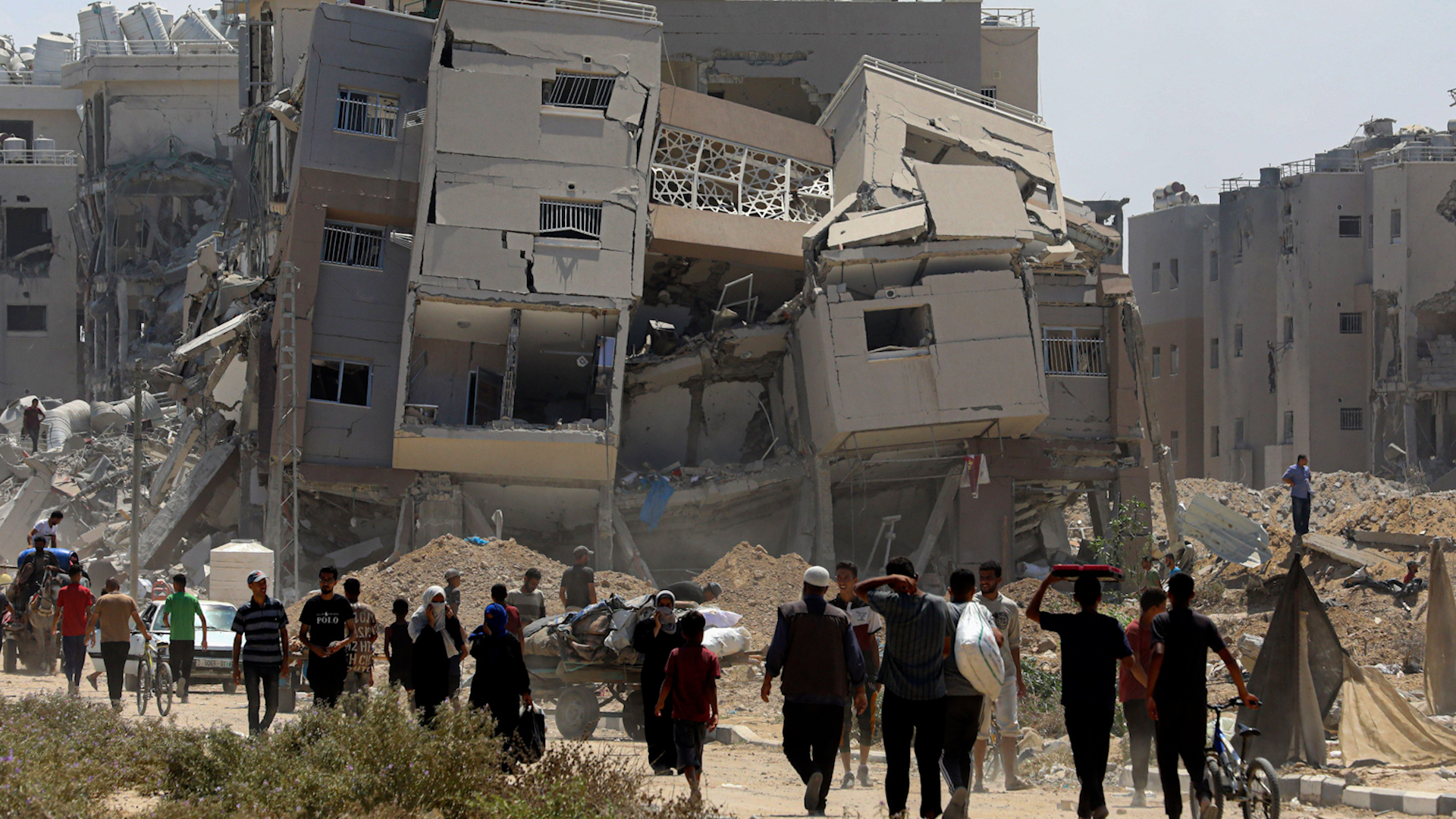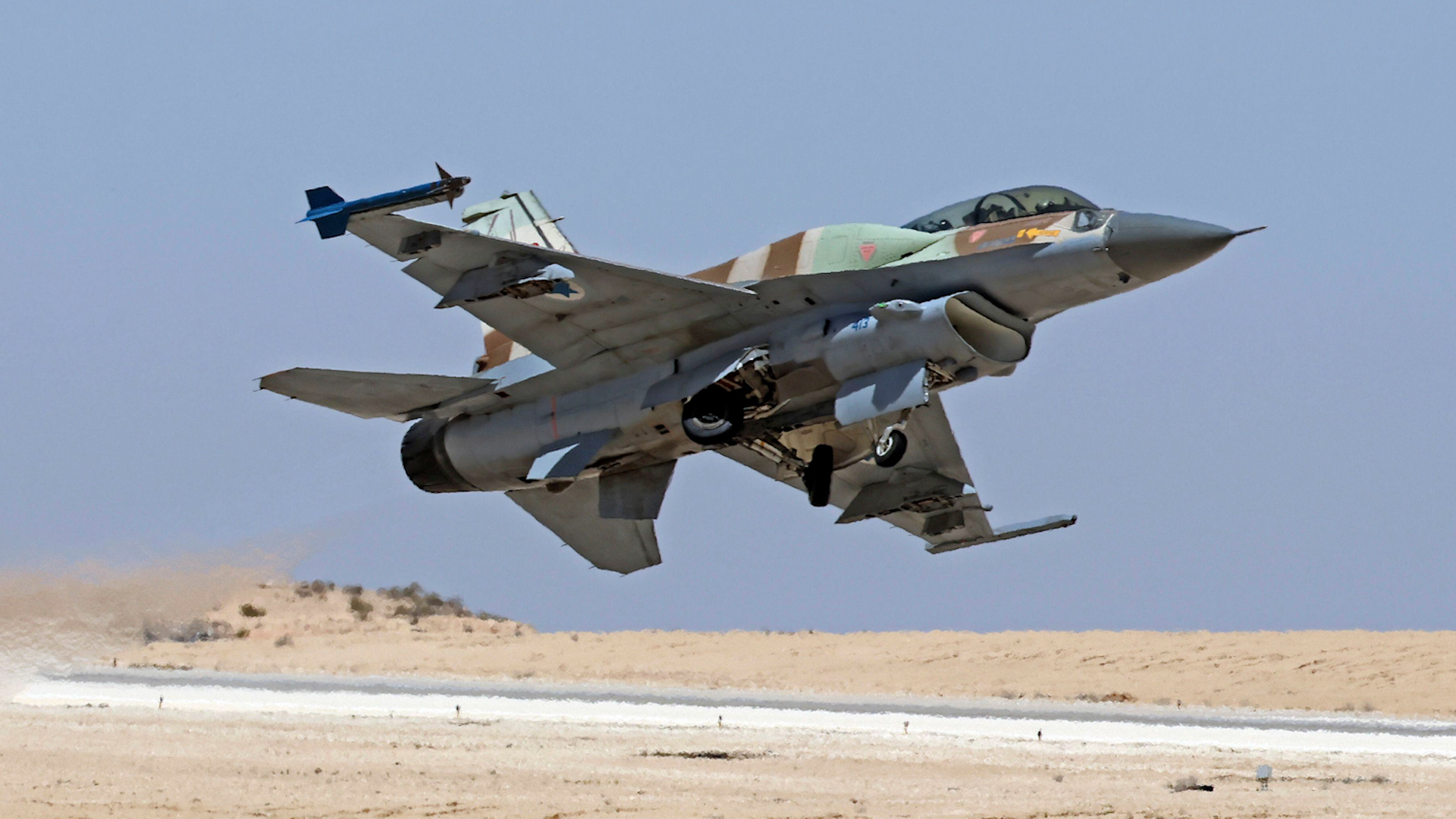
UK suspends 30 of its 350 arms export licences to Israel following Middle East assessment

Amid concerns that a "clear risk" exists that Israel could breach international humanitarian law, the UK has suspended around 30 arms export licences to Israel.
Following the announcement, some have questioned the sanctions, among those are senior Israeli officials, with the country's defence minister Yoav Gallant claiming he was "deeply disheartened".
However, many have agreed with Christian Aid's head of Middle East policy William Bell who believes the suspension of some arms export licences to Israel "does not go far enough".
Mr Bell believes suspending around 30 arms export licences is "little more than window dressing".
A "total ban" is the "only way to categorically ensure arms sold to Israel are not used in violations of human rights", he said.
He added that "urgent steps" were needed to end the suffering of people in the region.
In his first appearance as Foreign Secretary in the House, David Lammy shared the conclusions of the Middle East review.
The assessment he received led him "unable to conclude anything other than that for certain UK arms exports to Israel there does exist a clear risk that they might be used to commit or facilitate a serious violation of international humanitarian law".
UK's contribution to Israel
Mr Lammy told Parliament that the suspension would not have a material impact on Israel's security, with British exports amounting to fewer than 1% of the total arms that Israel receives.
In the latest suspension of arms, out of a total of approximately 350, the UK is suspending 30.
This includes equipment that the UK assesses is for use in the current conflict in Gaza, such as important components that go into military aircraft, including fighter aircraft, helicopters and drones, as well as items which facilitate ground targeting.
Despite highlighting that "Israel's actions in Gaza continue to lead to immense loss of civilian life, widespread destruction to civilian infrastructure, and immense suffering", Mr Lammy said the Government does "not take this decision lightly" and stressed it is "not an arms embargo".
Business Secretary Jonathan Reynolds, in a written ministerial statement, said: "This includes components for fighter aircraft (F-16s), parts for unmanned aerial vehicles (UAVs), naval systems, and targeting equipment."

He added: "Assessments of Israel's commitment to international humanitarian law will continue, including with regard to the provision of food and medical supplies to civilians in Gaza and the treatment of detainees, and may change over time to allow reinstatement of these licences."
Unlike the US, the UK does not provide arms directly to Israel but issues licences for companies to trade weapons with input from lawyers on whether they comply with international law.
Mr Reynolds continued: "The UK stresses that there is no equivalence between Hamas terrorists and Israel's democratic government. The UK remains committed to supporting Israel's self-defence.
"But to license arms exports to Israel, the UK must assess their compliance with international humanitarian law, notwithstanding the abhorrence of their opponents' tactics and ideology."
F-35 fighter jet programme
Excluded from the suspension decision – except where going directly to Israel – are the exports to the global F-35 fighter jet programme, to avoid "prejudicing the entire" scheme.
This was one of the decisions that led Sacha Deshmukh, Amnesty International UK's chief executive, and other charities to say that the Government's action was "riddled with loopholes".
Mr Deshmukh said: "We need to see a complete halt – with no loopholes, including for components for F-35s supplied to the USA for onward export to the Israeli military – to all UK arms transfers to Israel."
The F-35 programme is rolled out internationally across the US, the UK, Italy, the Netherlands, Turkey, Canada, Australia, Denmark and Norway, among others.
Oxfam chief executive Halima Begum said: "Suspending just 30 licences out of 350 and crucially leaving loopholes for components in F-35 fighter jets that have been dropping 2,000lb bombs on Palestinians for months now, is nowhere near adequate.
"In the time Parliament has been in recess alone, Oxfam estimates that over 1,100 people have been killed in Gaza by the Israeli military.
"By leaving a loophole that allows Israel to order weapons via third parties, the suspension is little more than window dressing."
The war in Gaza escalated on October 7 when Hamas-led militants stormed across the border into Israel, killing around 1,200 people, mostly civilians, and abducting around 250 others.
More than 40,000 Palestinians have been killed in Israel's counter-attack, according to the territory's Health Ministry, which does not distinguish between combatants and civilians.






